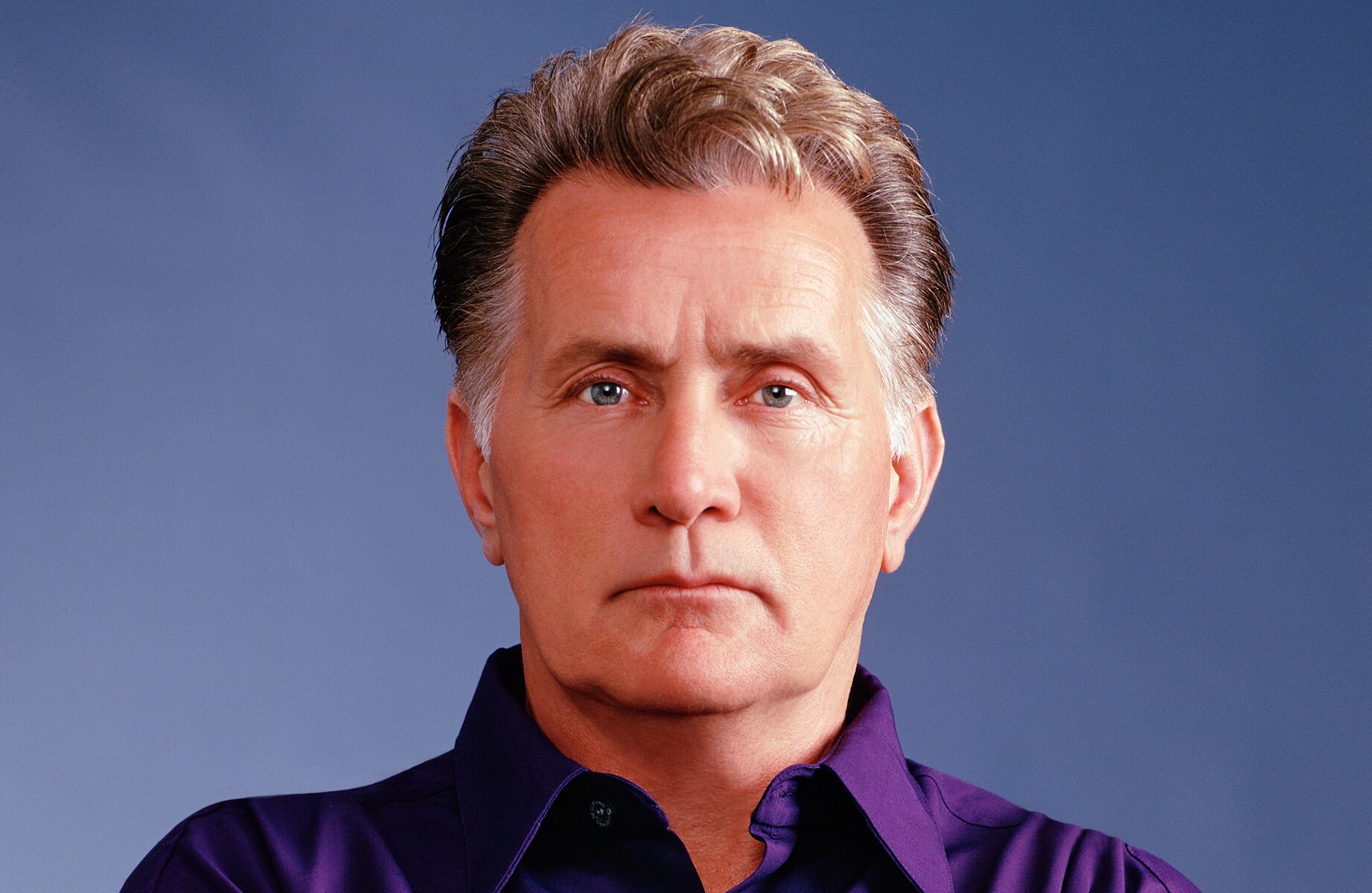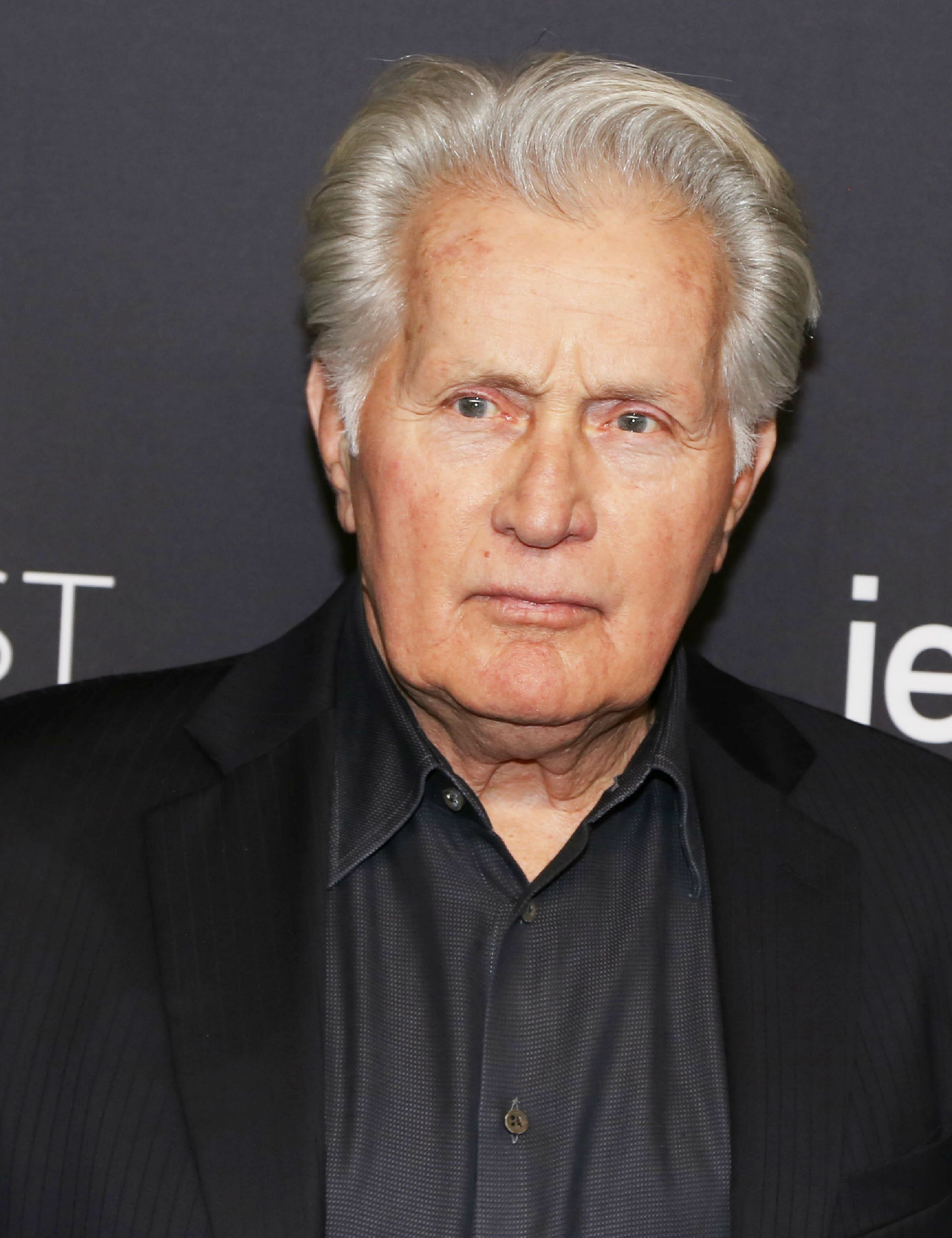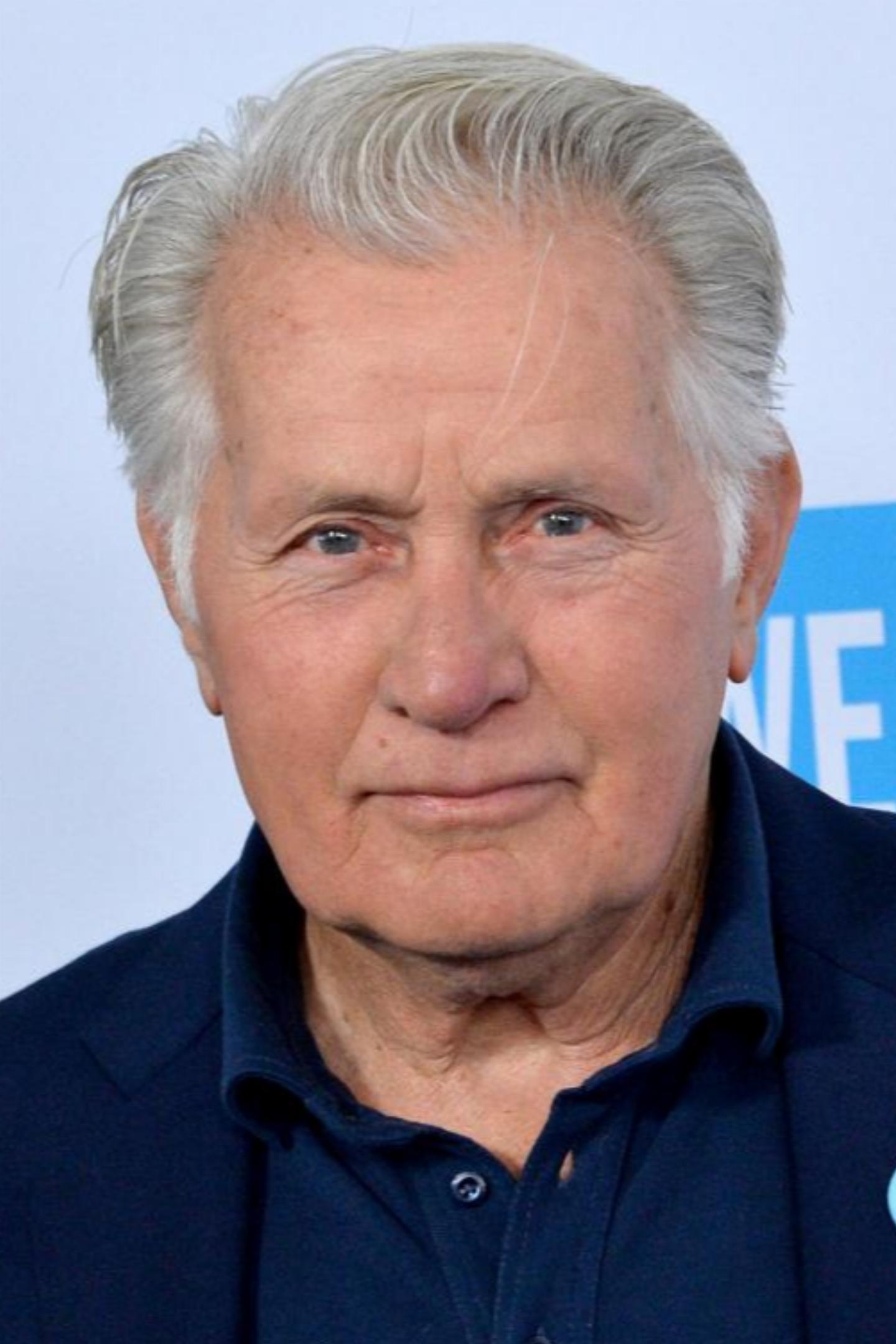Martin Sheen: The Enduring Legacy Of A Hollywood Icon
From the gritty jungles of Vietnam to the hallowed halls of the White House, the career of Martin Sheen has carved an indelible mark on the landscape of American cinema and television. For over six decades, this prolific actor has captivated audiences with his intense performances, profound versatility, and unwavering commitment to his craft. Beyond the silver screen, Sheen's life has been a testament to resilience, family, and a passionate dedication to social justice, making him far more than just a performer; he is a cultural touchstone whose influence continues to resonate.
Born Ramón Gerard Antonio Estévez, his journey to becoming the revered Martin Sheen is a compelling narrative of perseverance and artistic transformation. His iconic roles, particularly Captain Willard in Francis Ford Coppola's epic *Apocalypse Now* and the beloved President Josiah Bartlet in Aaron Sorkin's critically acclaimed series *The West Wing*, have cemented his status as one of the most respected and recognizable figures in entertainment history. This article delves into the remarkable life and career of Martin Sheen, exploring the depth of his talent, the breadth of his work, and the lasting impact he has had on both the industry and the world at large.
Table of Contents
- From Ramón Estévez to Martin Sheen: A Name's Journey
- The Formative Years: Early Career and Breakthrough
- Captain Willard and the Heart of Darkness: Apocalypse Now
- Leading the Free World: The West Wing's President Bartlet
- Beyond the Iconic Roles: A Versatile Filmography
- Personal Life and Family Legacy
- Martin Sheen: A Biography at a Glance
- The Undeniable Impact of Martin Sheen
From Ramón Estévez to Martin Sheen: A Name's Journey
The man we know as Martin Sheen was born Ramón Gerard Antonio Estévez on August 3, 1940, in Dayton, Ohio. His father, Francisco Estévez, was a Spanish immigrant from Galicia, and his mother, Mary-Ann Phelan, was an Irish immigrant. Ramón was one of ten children, growing up in a devout Catholic household that instilled in him strong values and a sense of community. This humble upbringing, far removed from the glitz and glamour of Hollywood, would shape the grounded individual he would become. The decision to adopt a stage name was a pragmatic one, common in an era when ethnic names were often seen as a barrier to mainstream success in the entertainment industry. Ramón chose "Martin" in homage to the CBS casting director Robert Dale Martin, who had given him his first big break, and "Sheen" in honor of the Catholic archbishop and theologian Fulton J. Sheen, whom he admired. While he later expressed some regret about not keeping his birth name, acknowledging the cultural significance of his heritage, the name Martin Sheen quickly became synonymous with talent and gravitas. This early career decision marked the beginning of a remarkable journey, laying the groundwork for a career that would span over six decades of television and film, distinguishing him as a true titan of the acting world. His roots, however, always remained a vital part of his identity, influencing his work and his deeply held beliefs.The Formative Years: Early Career and Breakthrough
Martin Sheen's path to stardom was not an overnight sensation but a slow, deliberate ascent built on dedication and relentless hard work. After moving to New York City in the late 1950s, he began to hone his craft in the theater, often struggling to make ends meet. He made his Broadway debut in 1964 in the play *The Subject Was Roses*, a performance that earned him critical acclaim and a Tony Award nomination. This early recognition on stage demonstrated his raw talent and capacity for powerful, nuanced performances, setting the stage for his eventual transition to film and television. Throughout the 1960s and early 1970s, Martin Sheen steadily built his resume with a string of impressive television appearances and supporting film roles. He became a familiar face on popular shows like *Route 66*, *Mission: Impossible*, and *Hawaii Five-O*, showcasing his versatility across various genres. His early film work, including roles in *The Incident* (1967) and *The Subject Was Roses* (1968, reprising his stage role), further solidified his reputation as a compelling character actor. These formative years were crucial, allowing him to develop the depth and range that would soon be called upon for one of the most demanding and iconic roles of his career, a role that would forever change the trajectory of Martin Sheen's professional life and cement his place in cinematic history.Captain Willard and the Heart of Darkness: Apocalypse Now
No discussion of Martin Sheen's career would be complete without a deep dive into his portrayal of Captain Benjamin L. Willard in Francis Ford Coppola's monumental 1979 Vietnam War epic, *Apocalypse Now*. This role is arguably the one for which he is best known, a performance that is as legendary for its intensity and psychological depth as it is for the notoriously challenging production conditions under which it was made. Sheen took over the role from Harvey Keitel early in production, a last-minute decision that proved to be a stroke of genius. The filming of *Apocalypse Now* in the Philippine jungles was a grueling ordeal, plagued by typhoons, illness, and the sheer ambition of Coppola's vision. Sheen, known for his method acting approach, immersed himself completely in the role of the disillusioned and increasingly unhinged Willard, tasked with assassinating the rogue Colonel Kurtz. This immersion took a severe toll on his health; he suffered a heart attack during filming, a testament to the extreme physical and emotional demands of the part. Despite these immense challenges, Sheen's performance is nothing short of mesmerizing. He conveys Willard's descent into the moral ambiguity of war with chilling precision, his internal monologue guiding the audience through the madness. The raw, visceral quality of his acting, particularly in the opening scene where he famously punches a mirror, remains a powerful cinematic moment. His portrayal earned him a nomination for the BAFTA Award for Best Actor, a significant recognition that underscored the critical acclaim for his transformative work. *Apocalypse Now* not only became a cultural phenomenon but also solidified Martin Sheen's reputation as an actor capable of extraordinary depth and resilience, forever linking his name with one of cinema's greatest achievements.Leading the Free World: The West Wing's President Bartlet
If *Apocalypse Now* showcased Martin Sheen's capacity for raw, internal struggle, then his role as President Josiah Bartlet in the acclaimed television series *The West Wing* revealed his unparalleled ability to embody wisdom, integrity, and profound leadership. Running from 1999 to 2006, *The West Wing* became a cultural touchstone, offering an idealized yet often cynical look at the inner workings of the American presidency. Sheen's portrayal of President Bartlet, a Nobel laureate economist with a sharp wit, deep moral compass, and a hidden battle with multiple sclerosis, captivated audiences and critics alike. Originally intended for a more limited role, Sheen's charisma and commanding presence quickly elevated President Bartlet to a central figure, becoming the moral and intellectual anchor of the series. His performance was lauded for its authenticity and depth, making Bartlet one of the most beloved fictional presidents in television history. Sheen brought a unique blend of intellectual gravitas, paternal warmth, and a fierce commitment to justice to the character, often delivering Aaron Sorkin's rapid-fire, eloquent dialogue with effortless mastery. The show resonated deeply with viewers, offering a hopeful vision of public service during a time of increasing political cynicism. For his work on *The West Wing*, Martin Sheen received numerous accolades, including a Golden Globe Award for Best Actor – Television Series Drama, and multiple Emmy nominations. His portrayal of President Bartlet not only cemented his status as a television icon but also showcased his ability to inspire and lead, even in a fictional capacity, leaving an indelible legacy that continues to influence political dramas and inspire viewers.Beyond the Iconic Roles: A Versatile Filmography
While Captain Willard and President Bartlet are undoubtedly the roles for which Martin Sheen is most widely celebrated, his career is far richer and more diverse, spanning over six decades of television and film. He has consistently demonstrated an extraordinary range, moving seamlessly between leading man and powerful character actor, working with a wide variety of esteemed film directors and showcasing his talent in genres from drama and thrillers to comedy and historical epics. His extensive filmography is a testament to his enduring appeal and his commitment to challenging roles.Diverse Collaborations and Memorable Performances
Throughout his illustrious career, Martin Sheen has had the privilege of collaborating with some of the most influential filmmakers of his generation. Beyond Coppola, he worked with directors such as Terrence Malick (*Badlands*), David Cronenberg (*The Dead Zone*), Steven Spielberg (*Catch Me If You Can*), and Martin Scorsese (*The Departed*). Each collaboration brought out a different facet of his acting prowess. In *Badlands*, he portrayed the charismatic yet dangerous Kit Carruthers, a role that established his early leading man potential. In *Wall Street* (1987), he played the ethical father to Michael Douglas's Gordon Gekko, a poignant counterpoint to the film's themes of greed. His later work, such as his role in *The Departed* as Captain Queenan, further demonstrated his ability to command the screen even in supporting capacities, adding gravitas and authenticity to every scene. He has also lent his distinctive voice to animated projects and narrated numerous documentaries, showcasing his versatility beyond on-screen acting. This broad spectrum of work underscores his adaptability and his consistent ability to deliver memorable performances, regardless of the size or nature of the role.A Voice for Activism and Social Justice
Beyond his acting, Martin Sheen is equally renowned for his passionate and unwavering commitment to social and political activism. A devout Catholic, his faith has profoundly influenced his stance on issues ranging from peace and human rights to environmental protection and nuclear disarmament. He has been arrested numerous times for civil disobedience during protests against war, nuclear weapons, and other injustices, embodying a genuine commitment to his beliefs that transcends his celebrity status. Sheen's activism is not merely a sideline but an integral part of who he is. He has often used his platform to advocate for change, speaking out against poverty, supporting workers' rights, and championing environmental causes. His public persona, particularly his portrayal of President Bartlet, often blurred the lines with his real-life activism, as he brought a similar sense of moral conviction to both his fictional and actual roles. This dedication to social justice adds another layer to the legacy of Martin Sheen, making him not just a celebrated actor but also a respected humanitarian and advocate, inspiring many to engage with the world around them. His life serves as a powerful example of how one can leverage influence for the greater good, proving that his impact extends far beyond the confines of a movie set.Personal Life and Family Legacy
Martin Sheen's personal life is as rich and enduring as his professional one. He has been married to Janet Templeton since 1961, a remarkable union that has lasted over six decades and produced four children, all of whom have followed in their parents' footsteps into the entertainment industry: Emilio Estevez, Ramón Estévez, Renée Estevez, and Charlie Sheen. The family's deep roots in Hollywood are a unique aspect of his legacy. The dynamic within the Estévez-Sheen family has often been a subject of public interest. Martin Sheen has openly discussed the challenges and triumphs of fatherhood, including the difficult period when he underwent counseling as he dealt with his son Charlie's drug issues. This public acknowledgement of personal struggles showcased Sheen's honesty and vulnerability, reinforcing his image as a grounded and compassionate individual. The "Martin Sheen to Charlie" crossword clue, which occasionally appears in puzzles, humorously highlights their well-known father-son relationship and the family's pervasive presence in popular culture. Despite the public scrutiny that comes with a famous family, Sheen has consistently emphasized the importance of family bonds and mutual support.Passing the Torch: A Family of Actors
The Sheen-Estevez family represents a unique acting dynasty in Hollywood. Emilio Estevez, perhaps the most recognizable of his children to retain the family's original surname, has enjoyed a successful career as both an actor and director, known for films like *The Breakfast Club* and *St. Elmo's Fire*. Charlie Sheen, adopting his father's stage name, rose to immense fame with roles in films like *Platoon* and *Wall Street* (where he notably played opposite his father), and later achieved massive television success with *Two and a Half Men*. Ramón and Renée Estevez have also had notable careers in acting, often appearing alongside their father in various projects. This intergenerational talent speaks volumes about the creative environment fostered within their home and the enduring passion for storytelling that defines the family. The legacy of Martin Sheen is not just his own but is beautifully extended through the careers and contributions of his talented children, solidifying the family's place in cinematic history.Enduring Influence and Continued Work
Even in his later years, Martin Sheen has shown no signs of slowing down, continuing to take on roles that challenge and inspire. His enduring presence in the industry is a testament to his passion for acting and his commitment to using his platform for meaningful storytelling. He has lent his voice to various documentaries and animated projects, and continued to appear in films and television series, often bringing a wise and authoritative presence to his characters. His influence extends beyond his performances; he is a mentor to younger actors and a respected voice within the industry, known for his professionalism and generosity. The sheer longevity and consistent quality of his work mean that new generations continue to discover his vast filmography, from his early, intense roles to his later, more contemplative performances. Martin Sheen remains a vital and beloved figure, a true icon whose contributions to film and television are immeasurable, and whose legacy continues to grow with each passing year.Martin Sheen: A Biography at a Glance
Here is a quick overview of key biographical details for Martin Sheen, highlighting his remarkable journey and significant contributions:| Category | Details |
|---|---|
| Full Name | Ramón Gerard Antonio Estévez |
| Stage Name | Martin Sheen |
| Born | August 3, 1940 (currently 83 years old) |
| Nationality | American |
| Occupation | Actor, Activist |
| Years Active | 1959–present (Over six decades) |
| Notable Roles | Captain Willard in Apocalypse Now (1979), President Josiah Bartlet in The West Wing (1999–2006) |
| Spouse | Janet Templeton (m. 1961) |
| Children | Emilio Estevez, Ramón Estévez, Renée Estevez, Charlie Sheen |
| Accolades (Selected) | BAFTA Award Nomination (Best Actor, Apocalypse Now), Golden Globe Award (Best Actor – Television Series Drama, The West Wing) |
The Undeniable Impact of Martin Sheen
The career of Martin Sheen is a masterclass in longevity, versatility, and profound impact. From his early struggles in New York theater to becoming one of Hollywood's most respected and recognizable faces, he has consistently delivered performances that resonate with depth, intelligence, and raw human emotion. His work spans over six decades of television and film, encompassing a vast array of characters, each brought to life with his distinctive blend of intensity and nuance. Whether he was navigating the psychological horrors of war as Captain Willard or leading the nation with unwavering conviction as President Bartlet, Sheen has always commanded the screen with an undeniable presence. Beyond his acting prowess, Martin Sheen's unwavering commitment to social justice and human rights has cemented his status as a true humanitarian. He has used his platform not for personal gain, but to advocate for peace, environmental protection, and the marginalized, embodying the very principles he often portrayed on screen. This dedication to a cause greater than himself adds an invaluable dimension to his legacy, making him an inspiration to many. His personal journey, including his openness about family challenges, further showcases his authenticity and resilience. The enduring influence of Martin Sheen is a testament not only to his extraordinary talent but also to his integrity, his passion, and his profound ability to connect with audiences on a deeply human level, leaving an indelible mark on both the entertainment world and the broader social consciousness.Conclusion
In conclusion, the journey of Martin Sheen, born Ramón Gerard Antonio Estévez, is a remarkable narrative of artistic dedication, personal conviction, and enduring influence. His prolific career, spanning over six decades, is punctuated by iconic roles like Captain Willard in *Apocalypse Now* and President Josiah Bartlet in *The West Wing*, performances that have earned him critical acclaim and a permanent place in the annals of film and television history. Beyond the captivating characters he has brought to life, Sheen's unwavering commitment to social justice and his profound personal integrity have made him a respected figure far beyond the confines of Hollywood. His story is one of consistent excellence, resilience in the face of challenges, and a deep-seated desire to use his platform for good. As we reflect on the incredible legacy of Martin Sheen, it becomes clear that his impact extends far beyond the screen, touching lives through his artistry and his activism. What aspects of Martin Sheen's career or personal life resonate most with you? Share your thoughts in the comments below, or explore more articles on legendary actors and their lasting contributions to cinema and society.
Martin Sheen

In the King of Prussia Summary, Latest News, Trailer, Cast, Where to

Martin Sheen - FilmAffinity